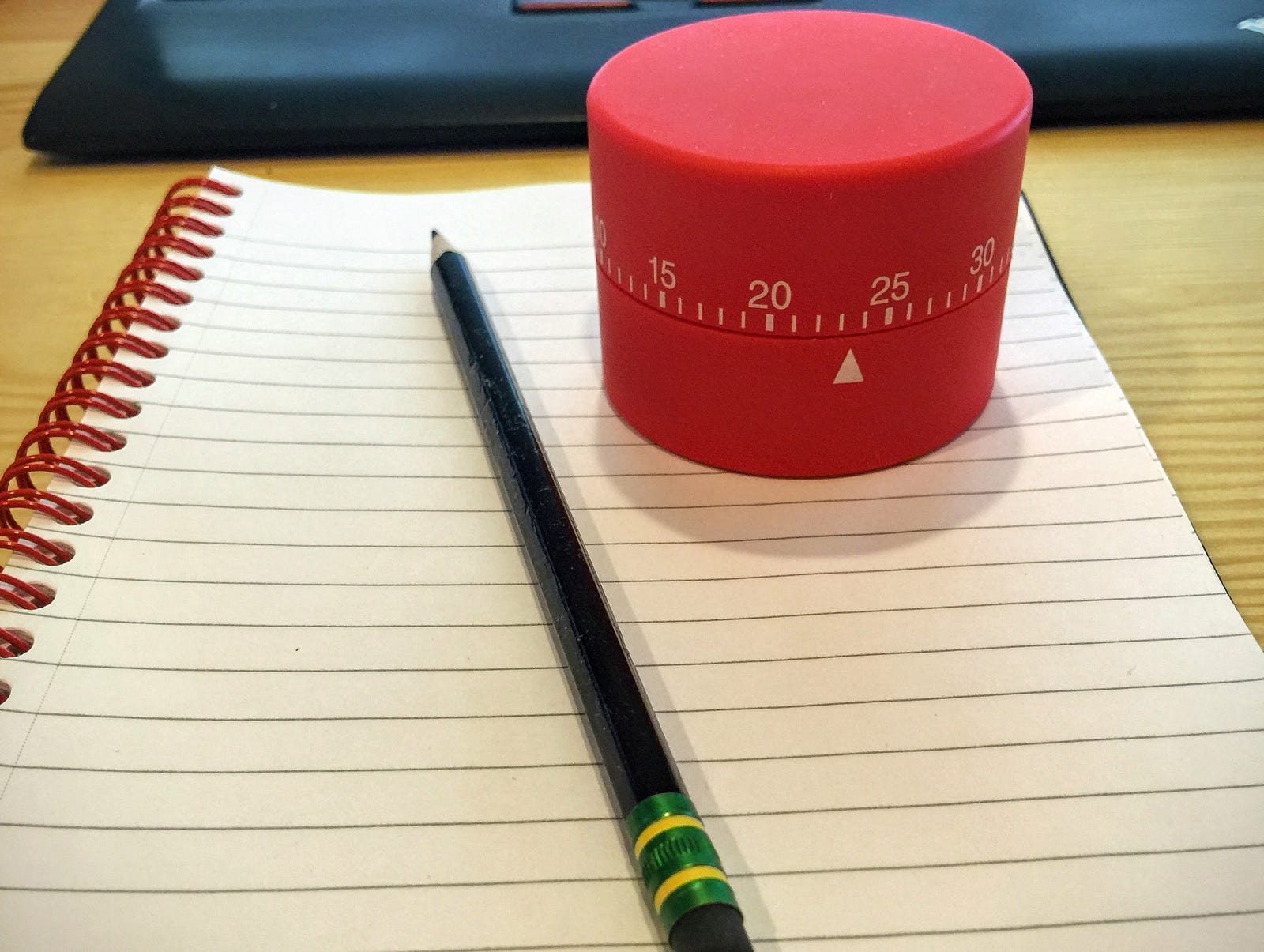Writer’s block can happen to anyone. It usually occurs when you are unable to come up with a word and put it on a piece of paper or your online writing tool. It’s like your brain is stuck and unable to let your creative juices flow. Fortunately, you can deal with it by adopting some of these 10 Useful Tips To Overcome Writer’s Block.
1) Get Rid of Distractions
That means turn off your smartphone and keep it away from plain sight. Also, disconnect your WiFi and if you rely on your PC or laptop, make sure you are using only Microsoft Word or any other word processors for writing purposes.

2) Try The Pomodoro Technique
Originally developed by Francesco Cirillo, this time-management technique is meant to get you focused while developing a consistent habit of writing every day. All you need to do is sit down, set a timer for 25 minutes and start writing (on your laptop/PC or a piece of paper) and don’t get up until the time is up. Then, take a short break for around two to three minutes. You can either grab a cup of coffee or do whatever that relaxes your mind as long as it’s not work-related. This is to help you recharge and prevent burnout.

3) Change The Way You Write
Assuming you always typing your piece using a laptop. And if you ever get stuck with a writer’s block, why not try switching up with another type of writing tool instead? It can be anything from a good old-fashioned pen and paper to a smartphone using a note-taking app.

4) Forget About Perfectionism By Developing A Habit Of Freewriting
Having a trouble writing even for a first sentence? This often happens if you overthink about every single thing. It can be anything from picking the right word to filling yourself with endless self-doubt into your mind. The thing is, perfectionism won’t get you any further if you fail to start writing. Try freewriting instead. It basically works by spending your time writing continuously. It doesn’t matter whether your write-up turns out irrelevant or is filled with lots of grammar mistakes and spelling errors. The whole point of freewriting is to get you writing without filtering yourself. In the end, you might come up with something useful that would spark your creativity.

5) Your Writing Space Matters
Look at your desk. Is it cluttered a mess of papers, books and whatnot? This can affect your productivity. The same goes for your chair. Is it comfortable enough to sit for long hours? Is your chair making squeaky noises? The whole point is to ensure you are able to find the right space that gets you motivated to start writing, not the other way around.

6) Get Up And Move Your Body
If you find yourself staring at a blank page and are unable to come up with a single word, it’s time to stretch your legs. That means get physically active by moving your body. You can either go out for a short walk, practice some yoga poses or even run some errands. This helps to clear your mind and get your creative juices flowing.

7) Find Your Routine
Sticking to the same old routine can be boring. But at the same time, it also helps to keep us disciplined and develop good habits. This also applies to the way we write. Establish a regular time of the day where your mind works the best and stick with it.

8) Put On Some Music
Jazz, ballad, pop, R&B — you name it, it can be any type of music genre as long as it doesn’t distract you from writing. Every person has its own preference as some music helps trigger a positive emotion that motivates you to write, while other music might do the opposite.

9) Do Something Else That’s Creative
Is your mind running out of creative juice? Don’t force yourself since it will do you more harm than good. You obviously need to recharge and one of the best ways to do it is do whatever that involves creativity. It can be reading blogs, articles or a book, watch a related YouTube video or even write something else that doesn’t involve your task. This is to jumpstart your creative juices again, and who knows, you might have some new ideas to start or continue writing in no time.

10) Learn How To Listen To Your Body
Let’s face it, writing requires a lot of thinking. If you suffer from sleep deprivation or consume lots of junk food, it can actually affect your mind and body. This, in turn, makes you feel sluggish and mentally fatigued. Which is why it’s important to always pay attention to your own body. For instance, if you sleep only 4 to 5 hours over the past week, it’s an obvious sign that your body needs proper rest.

https://www.facebook.com/tallypressmy/















